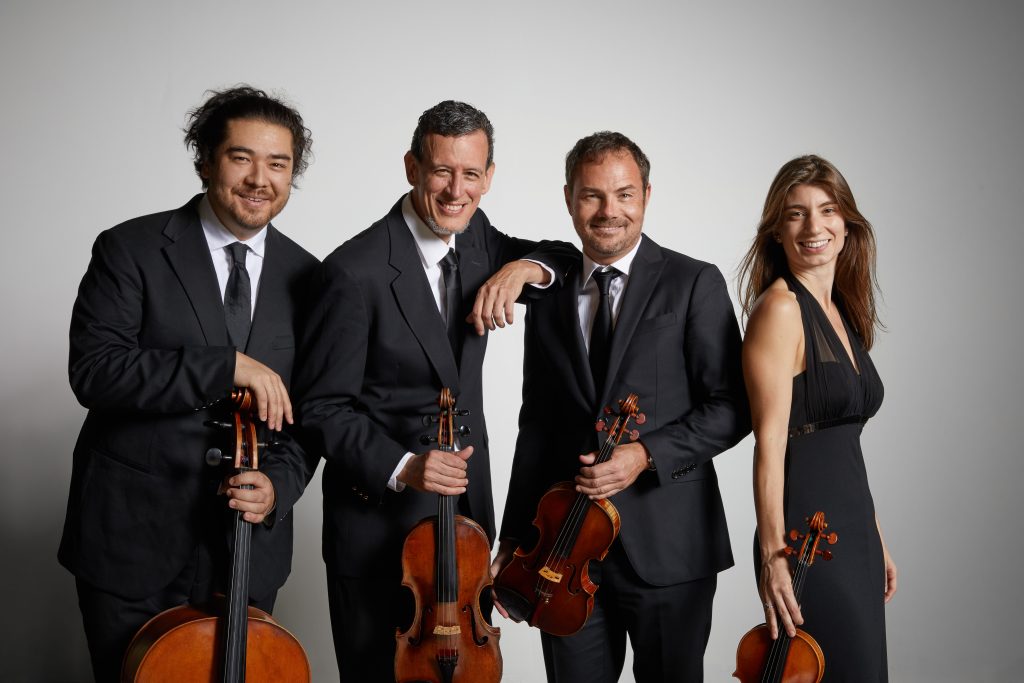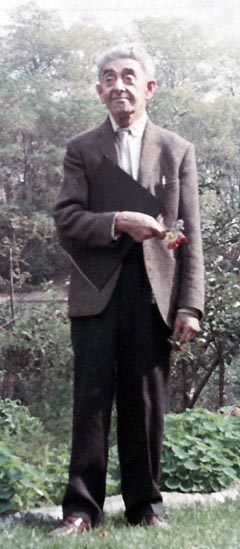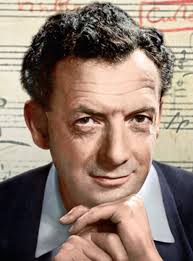
The Euclid Quartet bears the name of someone who underpins nearly everyone’s life. Euclid’s Elements (two volumes) is the third best-selling book in the history of the world. Almost every house designed by an architect stands upon Euclid’s theorems, yet most people are unaware that Euclid was also one of the greatest poets who ever lived. Euclid wrote with such elegance and concision that his perception of reality, logic, and reason contained such poetic punch and awe that no subsequent poet has achieved.
As Shakespeare once quipped, that aspect of his poetic aesthetic remains “Greek to me,” since the middle-class lad from Stratford never attended college. Countless great Greek manuscripts have been lost. Socrates wrote over a hundred plays and we have none. The loss of Euclid’s third volume, his most important work, has been a seminal tragedy that haunts the past two millennia.
Since Euclid’s practical poetry rivals Homer’s eloquent realistic and allegorical fiction, it is fitting that a sophisticated musical quartet brandishes the great poet-logician’s name. They opened with String Quartet No. 4 by Hugo Kauder (1888-1972), a noted violinist and composer from Vienna who wrote this quartet in this country in 1927.

Following the Nazi annexation of Austria, Kauder left Vienna for Holland in December 1938, then settled in New York City in 1940 where he invented a new method for teaching violin and wrote two books on his method as well as a book on counterpoint, and a book on melody and harmony. The Hugo Kauder Society was founded (2002). The Euclid Quartet has recorded his four string quartets for Centaur Records.
The first four movements of this fourth string quartet are strikingly accomplished, yet conventional in the Viennese style, accenting pleasant melody and harmony. The composition opens with a tragic lament. The slow second movement is quite rhythmically infectious with an American melody. The third movement offers a lively waltz while the fourth movement returns to lament.
The final fifth movement remains surprising for its day as well as today. Suddenly we are off to the races with bluegrass strings, then seemingly out of nowhere, we encounter a lovely slow movement that gives way to that racing bluegrass melody which revels in amusement.
Kauder adumbrates and laments the loss of Viennese vitality, casting his eyes toward the future of music across the Atlantic where there are new, unplowed musical traditions for Europeans to absorb, a remarkable prophetic perspective from a hundred years ago.

In the spring of 1893, Dvořák was commissioned by the New York Philharmonic to write Symphony No. 9, From the New World. This was the beginning entry of American folk tunes into Classical music. In 1904 Samuel Coleridge Taylor from England, heartily welcomed by President Theodore Roosevelt, began assimilating American tunes into his compositions. Others followed: William Grant Still, Aaron Copland, Florence Price, Julia Perry, etc.
Jameson Cooper dominated the performance of this impressive string quartet on first violin with Aviva Hakanoglu on second violin, both casually changing their violin styles between old European and new American. The finale was an amusing hoot!

As a pleasant and lively interlude, they performed three short Classically orchestrated piano rags by William Bocum (b. 1939) from 1989. In 1971, I recall that his landmark Heliotrope Bouquet: Piano Rags 1900–1970 was nearly the only vinyl record I bought. These were performed with superb delight!
The Euclid Quartet then performed String Quartet in D Major, Op. 25 (1941) by Benjamin Britten, one of England’s foremost composers who is rarely performed anymore in the U.S. This work was composed in the U.S. during the two years Britten resided here.

The ethereal high-pitched sound of the opening rondo is riveting. The contrasting “reply” remains earthly, grounded by the cello. The established either/or see-saw offers dialectical drama. Return appears ironically as development amid continual flow. The Scherzo offers an anarchic, exciting, swirling march. A slow, mysterious Andante returns to the elevated ethereal theme with opulent poignancy, especially in the cello. The opening fugue of the Vivace movement alludes to Baroque majesty as a precedent for the possibility of religious renewal amid lively, confident tonal stability. This short movement remains an unusual masterpiece! This performance was the high point of this wonderful concert with its consoling, healing conclusion, especially in the violins of Cooper and Hakanoglu.

After intermission, the quartet performed String Quartet in D Minor, D. 810 by Franz Schubert (1824), nicknamed “Death and the Maiden” based upon a painting on that subject. This rather popular composition was likely chosen because of its two-hundredth anniversary. This is not exactly my favorite Schubert work (it is quite repetitious), yet I admit that it was the best-performed and most enthusiastic version I have ever heard with Luis Enrique Vargas eloquent on viola and Justin Goldsmith on sonorous cello, neither overstepping their roles (as sometimes occurs when playing this work).
This performance was underwritten by the Hugo Kauder Society, of which I hope to hear more from.